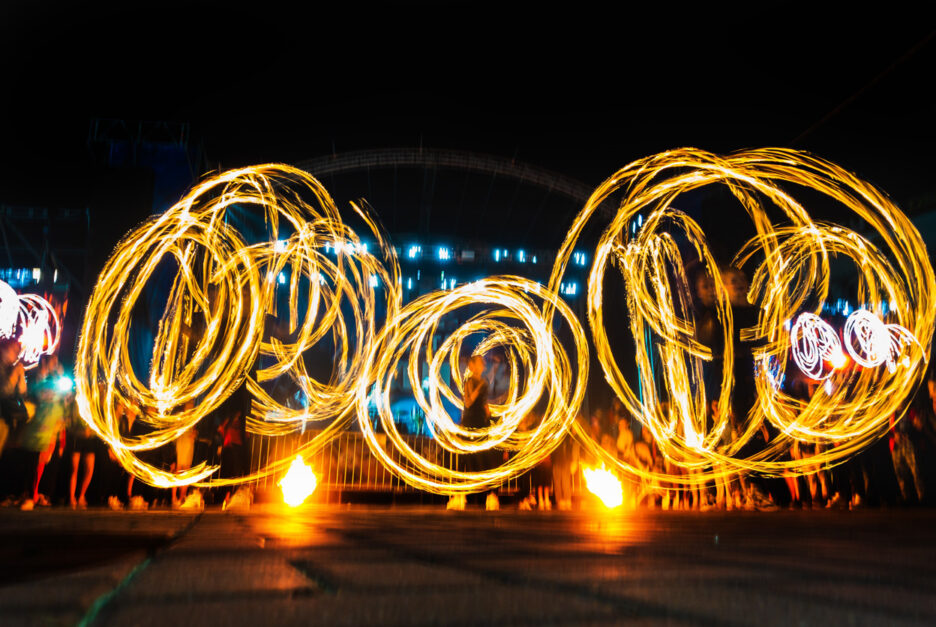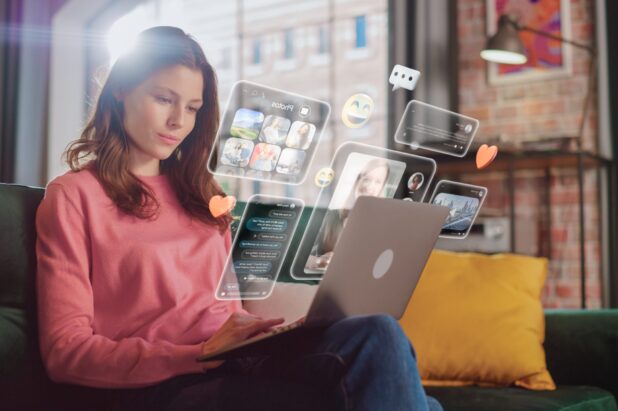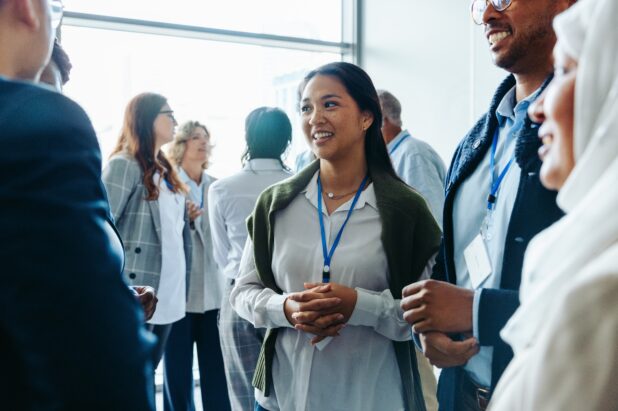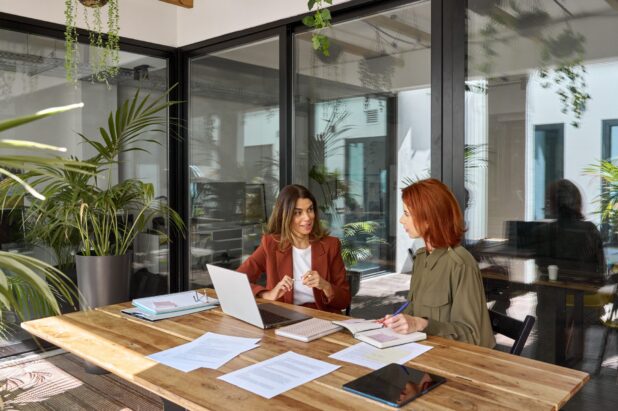I was 22, a year out of college, and finding my footing as a marketing writer. My whole career – my whole life! – lay before me.
And then (according to my parents) I ran away to join the circus. In reality, I joined a performance troupe at the local Renaissance Festival. I didn’t even get to leave town.
Within a year I met a guy, fell in love, and we started a fire show (that old cliche). Together with seven of our closest friends, we spent the next two decades perfecting the art of marketing. Oh, and fire dancing. But, to be honest, without the marketing skills, our technical skills alone wouldn’t earn us bookings.
Yes, my friend! Entertainers – especially scrappy street festival performers – live and breathe marketing!
Join me on the stage and I’ll explain.
B2B Marketing and Entertainment: More Alike Than You Might Think
Fun fact: Every last content marketing writer at TopRank Marketing also works in entertainment. From podcasting to performing music, pun-slinging to pyro, we each have one foot in B2B marketing and the other foot on the stage.
The B2B marketing and entertainment worlds overlap in more ways than one might imagine. It’s true that creativity is a big part of this overlap. After all, we have written time and time again about the vital role creativity plays in effective B2B marketing. The folks at LinkedIn* have even conducted extensive research proving its value.
But it’s more than that. Marrying the art of entertainment with the science of B2B marketing unlocks a powerful degree of insight that drives truly impactful marketing.
So, without further ado, I will share the top three ways that working as an entertainer made me a better B2B marketer.
1. Demand generation fills the seats
Hawking is the age-old art of hollering to a crowd that you have something amazing to offer them (in exchange for their money). When you’re performing at a festival, it’s also how you attract an audience to your show.
Nothing teaches you the art of generating demand more than competing with the sights, sounds, and smells of an enormous event to draw an audience. It’s essentially demand generation boot camp.
Through this boot camp, I learned to apply several key B2B marketing techniques:
- Influencer marketing: Targeting the influencer of a group is a lot more powerful than trying to snag every passing individual. If you land the influencer, they’ll bring their friends along – and nothing attracts a crowd like a crowd!
- Personalization: What inspires a family with young children to attend a fire show is going to be a lot different than what draws a group of 20-somethings. You need an arsenal of personalized quips to get a diverse audience in the seats.
- A/B testing: Imagine seeing the face of every viewer who DIDN’T click on your ad. Welcome to hawking! However, this immediate feedback enables you to engage in real-time A/B testing. Change a word here, a gesture there, and see what makes the audience take a seat. You’d be surprised what actually works.
2. Great content marketing creates an experience that drives conversions
When working at a festival, we earn most of our income through what is known as “passing the hat.” In B2B marketing terms, how this works is we deliver content (the show) for free and hope that it drives conversions (tips) by the end.
Yes, the show is the content. What we’re selling isn’t the show itself. What we’re selling is the experience.
In his book, The Experience Maker, Dan Gingiss touches on this concept with his methodology for identifying and creating remarkable customer experiences: Your content must create experiences that are witty, immersive, shareable, and extraordinary.
I learned from my time on the stage that you can have the most technically accurate content in the world, but if your audience doesn’t feel connected to what you’re offering, they’ll move on to the next show.
When we stopped pursuing technical perfection and instead focused on playing with the audience, our hat pass skyrocketed.
“I learned from my time on the stage that you can have the most technically accurate content in the world, but if your audience doesn’t feel connected to what you’re offering, they’ll move on to the next show.” — Theresa Meis of @TopRank Share on X3. Everything is storytelling, and storytelling is everything
Storytelling is fundamental to human connection because it helps us understand and relate to each other better. Our brains are wired to remember and connect with narratives, making storytelling a powerful way to communicate and build relationships.
As our show grew, we started purposefully storytelling through our choreography. It completely changed the experience our audience was having. They went from passively watching people do stunts to feeling the joy, sorrow, hope, and passion we were reflecting back to them from the stage.
When your B2B brand taps into storytelling, you tap into your customer’s emotions. A study by Google in partnership with Motista and CEB found that 50% of B2B buyers are more likely to buy if they can connect emotionally with your brand. It’s not only a powerful driver of B2B success – it’s an incredibly powerful way to build a brand community.
“Storytelling is fundamental to human connection because it helps us understand and relate to each other better. When your B2B brand taps into storytelling, you tap into your customer’s emotions.” — Theresa Meis of @TopRank Marketing Share on XEmbrace Your Inner Entertainer
B2B marketing is in the midst of a creative revolution. More brands are employing what had traditionally been B2C marketing tactics and seeing incredible results.
Even if you’ve never set foot on an actual stage, as a B2B marketer, I’d argue that you’re already working in the field of entertainment. Embrace this mindset and see where creative campaigns can take your brand!
*LinkedIn is a TopRank Marketing client.



